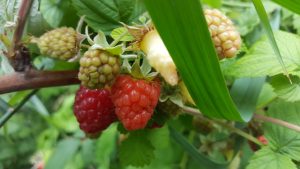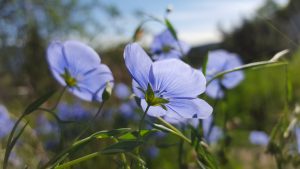I don’t know where the response came from and how it all started. I stopped and listened when I heard Sasha say ‘Who gives anyone the right to take an animal off the face of the planet?’. Sometimes that is what happens when we progress as a society, the answer came. An unfortunate side effect, Tony explained, brought upon by progress.
At that point the conversation got a life of its own: what is progress and what’s the most accurate way to explain the concept? All four of us agreed with the rather flat affirmation ‘You cannot stop progress.’ Indeed, you cannot. I find that unsettling.
Little boy argued for the goodness that is found in smaller communities: people know each other and the societal mesh can hold everyone securely. In big cities, some people get to live a very affluent lifestyle while others are chewed by life and thrown to the poor side of the street.
His brother argued that the immense leaps of progress humans have been accomplishing in the last century or so lead to better healthcare, lots of great scientific discoveries that make our lives easier and more comfortable.
I threw in a pebble for a bit of pondering time… A great few words by Ed Begley Jr. which I find intriguing and sobering. Clearly suited for our morning debate. “I don’t understand why when we destroy something created by man we call it vandalism, but when we destroy something by nature we call it progress.”
Oh? Both stopped to think. Hmm. I added my own: I wish that progress meant that we would use the knowledge and wisdom we have gathered over the years and bring our society (planet) to a higher level of well-being. They agreed, but… that is not the case. Why not?
Greed, egos, nearsightedness when it comes to life outside our immediate individual sphere? Our four people dialogue slipped into another realm: what makes us act in considerate ways versus acting for a certain gain (monetary for example)? I had read about how the human mind can either act out of kindness or for monetary gain but is never able to superimpose the two. Food for thought.
Can progress be made with consideration to life in all aspects and used to better everyone’s existence? It that feasible? Ethics and economics, progress and respect to human life and the environment, general well-being and societal growth… can they all be mixed up and moulded into a fluid, transparent yet warm and worthy of our complex nature, able to serve needs and keep us evolving towards better versions of ourselves as individuals and as a society (planetary society included).
The breakfast chat is to be continued. More reading, more talking, more listening… more to see and understand. Room to grow for all, brought through the gift of being free to think. Learning is amazing, isn’t it? The gift of freedom too. To make choices, to gather knowledge to choose in ways that prove wise and honour our humanity rather than stomp on it. My hope is that the boys will grow into understanding that. School as we know it…

 The reasons why they would learn and understand the multi-faceted process that is food preservation go beyond the rather simplistic ‘because it’s cool to have a homemade jar of jam or…(fill in the blanks)’. In our little school, we are shooting for the big picture. The bird’s eye view if you will.
The reasons why they would learn and understand the multi-faceted process that is food preservation go beyond the rather simplistic ‘because it’s cool to have a homemade jar of jam or…(fill in the blanks)’. In our little school, we are shooting for the big picture. The bird’s eye view if you will. What goes into growing food? Hard work, enriching the soil using natural methods (compost and manure), more hard work and plenty of fresh water, plus a community to sell it to or people to share it with. Conventionally grown food often comes with chemicals many of which can have effects on the brain, endocrine system and they can also increase the risk of allergies and chemical sensitivities. It also comes with a variable-size carbon footprint, depending where it is shipped from. Possibly some low-paid workers in there too. Another level of unaffordability you could say.
What goes into growing food? Hard work, enriching the soil using natural methods (compost and manure), more hard work and plenty of fresh water, plus a community to sell it to or people to share it with. Conventionally grown food often comes with chemicals many of which can have effects on the brain, endocrine system and they can also increase the risk of allergies and chemical sensitivities. It also comes with a variable-size carbon footprint, depending where it is shipped from. Possibly some low-paid workers in there too. Another level of unaffordability you could say.